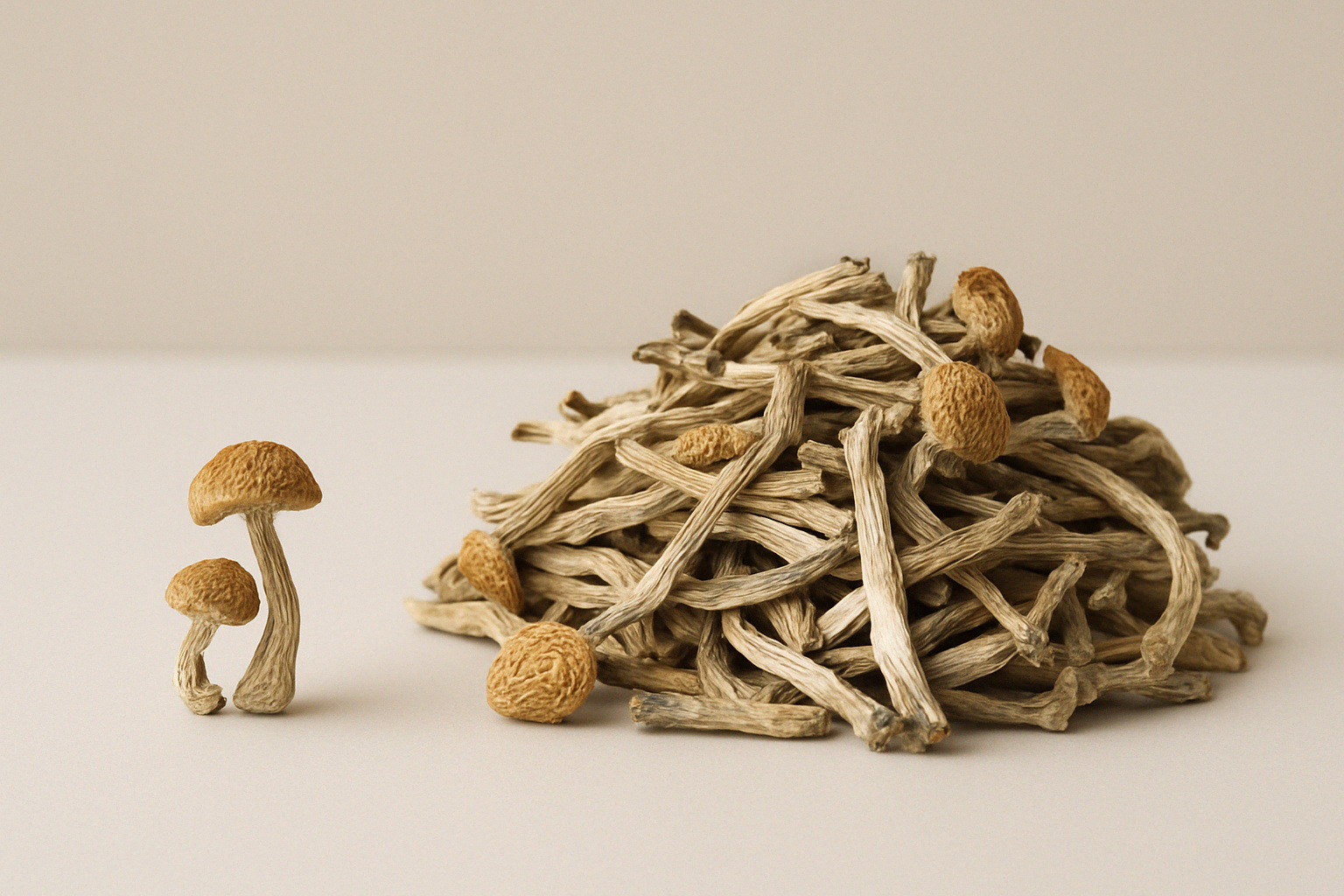What is psilocybin tolerance?
Tripping is a special experience and you may find it appealing to explore the psychonautical depths of your soul for several days in a row. However, that is not the best idea, not only because tripping can be very intense, but also because your body develops psilocybin tolerance. In this blog you can read what that means and how you can deal with it.
How do you recognize psilocybin tolerance?
Tolerance to a substance is described as the phenomenon in which the effect of a substance decreases after repeated administration. As a result, an increase in the dose is necessary to maintain the original effect. In short, there is a limit to how much of a drug you can take before your brain sets a new neurological threshold. This threshold means that you need more of the drug to induce psychoactive effects.
It is important to realize that tolerance is not the same as addiction. Tolerance is in fact an adaptation mechanism of the human brain. Addiction is a condition of the body and brain, in which dependence occurs on the substance. Drugs such as cocaine act on the dopamine receptors. Psilocybin in magic mushrooms, on the other hand, is not physically addictive. In fact, psilocybin is used in the treatment of addictions, such as cigarettes, alcohol and stimulants.
See for example research published on T and F online in which an open label pilot study, 2 to 3 doses of psilocybin in combination with cognitive behavioral therapy was used to help people quit smoking. This resulted in substantially higher numbers of people who were able to successfully quit smoking, than when other medications were used or when behavioral therapy was used alone. 12 months after the study, 10 out of 15 people had still quit smoking.
How does psilocybin tolerance develop?
The brain creates a rapid desensitization to psilocybin. This is also called tachyphylaxis. After psilocybin is converted to psilocin in the liver, it crosses the blood-brain barrier. Here it activates the 5-HT2A receptors, mainly in the prefrontal cortex. The brain quickly ensures that fewer receptors become available. But it is not known how quickly this happens.
This is a special process, you actually become less sensitive to the substance. You can see it as a huge room, in which the 5-HT2A receptors are open doors. If you throw a mushroom through one of the doors, a large number of the other doors immediately close. This means that, no matter how many mushrooms you throw into that room, there are no more doors that are open. Your brain can therefore no longer respond to the psychoactive substances.
The exact mechanism of psilocybin tolerance in humans has not yet been studied much. Most of what is known has come from research on animals. From a research (Sciencedirect, 2016) shows that LSD-25 could induce tolerance within 24 hours. LSD is also a 5-HT2A serotonin agonist. Although more research is needed, it seems reasonable to assume that a similar time period applies to psilocybin as well.
Factors that influence tolerance
So the question is how quickly that psilocybin tolerance actually occurs and how quickly the doors open again, after which you can feel the full effects of a dose again? Not much research has been done on this, but we can look at the experiences of users on Reddit, Erowid and Shroomery. And the answer is: it depends. Although these sources have no scientific value, they provide insight into subjective experiences.
On average, it seems to take between 4 and 7 days. However, there are also people who can have another powerful trip experience within 2 days of the first dose. Other people claim to have to wait at least 2 weeks. And there are even people who report being able to trip for several days in a row.
How quickly you develop tolerance and how long it lasts probably depends on several factorsdepends on your neurobiology, age, weight, and genetics. It is unwise to experiment with your tolerance limits. Be sensible and wait at least a week before considering another dose.
A relevant study examining the development of tolerance and cross-tolerance to psychedelics is:PMC+3PMC+3PubMed+3
Title:Tolerance and Cross-Tolerance among Psychedelic and Nonpsychedelic 5-HT₂A Receptor Agonists in Mice
Authors: Mario de la Fuente Revenga et al.
Publication: ACS Chemical Neuroscience, 2022
Link: https://pubmed.ncbi.nlm.nih.gov/35900876/
This study shows that repeated administration of psychedelic substances such as DOI and LSD in mice results in a decrease in hallucinogenic effects, indicating the development of tolerance. Furthermore, cross-tolerance between these substances was observed, suggesting that tolerance to one substance can affect sensitivity to another. These findings support the idea that repeated use of psychedelics leads to neurobiological adaptations that reduce the effects of these substances.
Are there risks to tolerance?
Magic mushrooms are mind-altering substances that affect your perception and thinking. One of the risks that can arise from tolerance is that you take too much and get too strong a trip. This is a mistake that both beginners and experienced psychonauts can make. You take a dose and if you don't feel the effects right away, you take some more.
This can also be caused by a full stomach or you have a less potent mushroom. But it mainly happens when people use psilocybin multiple times in a row. If you don't take psilocybin tolerance into account, it can lead to you taking more than you can handle.
It is also possible to develop Hallucinogen Persisting Perception Disorder (HPPD). This is a chronic condition characterized by the persistent presence of mostly visual disturbances. This can have a negative effect on your daily functioning. For more information about this condition, see this articleon Healthline. It is not common (only 4% of people who regularly use psychedelics), but it is certainly something to be aware of.
A good way to avoid these risks is to use drugs responsibly and have an experienced friend or girlfriend supervise you. Only use shrooms in a safe and comfortable environment. Do not take psychedelics for multiple days in a row, so that tolerance does not develop. Do not use mushrooms if you suffer from mental health conditions, such as trauma or depression. Mushrooms can increase anxiety and a bad trip can cause a recurrence of bad experiences.
Disclaimer
Please note: The information in this article is for educational purposes only and does not constitute medical advice. The use of psilocybin and other psychedelics carries risks, especially with repeated use or if you have existing mental health conditions. Always consult a qualified physician or specialist before considering using psychedelic substances, especially if you have mental health conditions or are taking medication.







